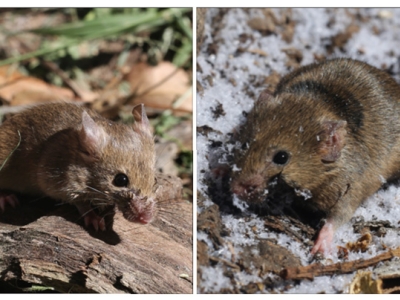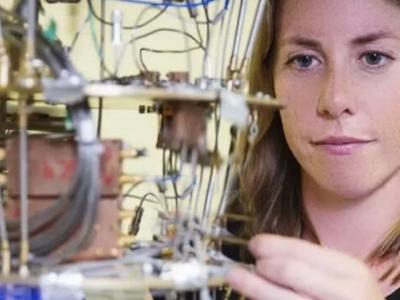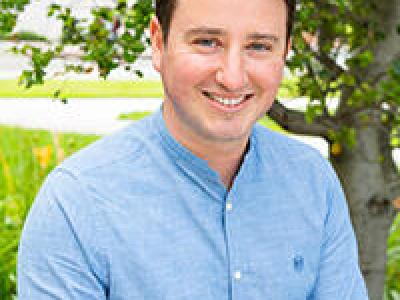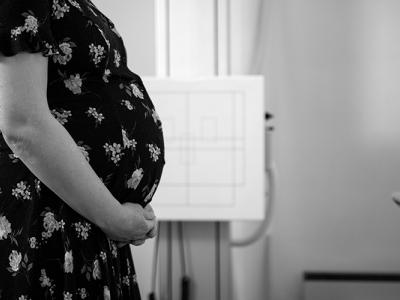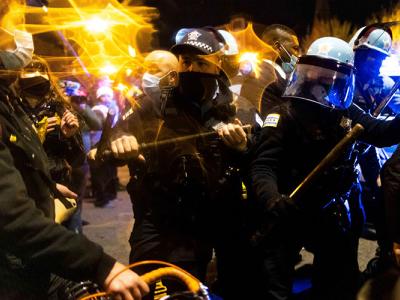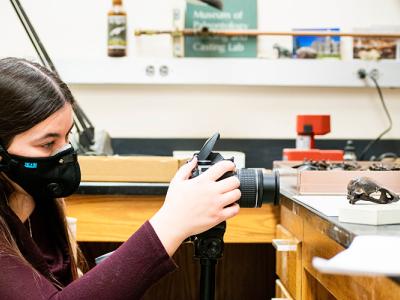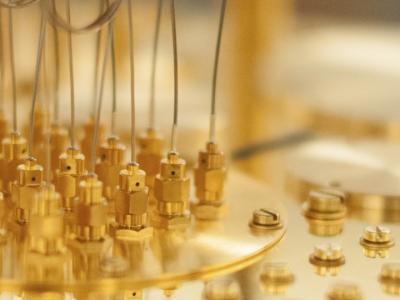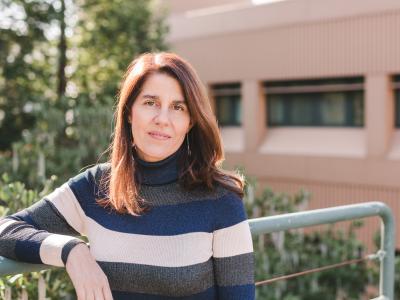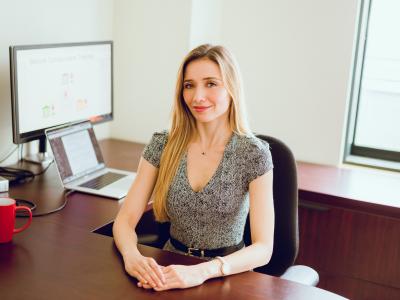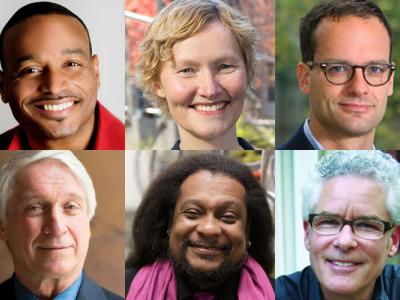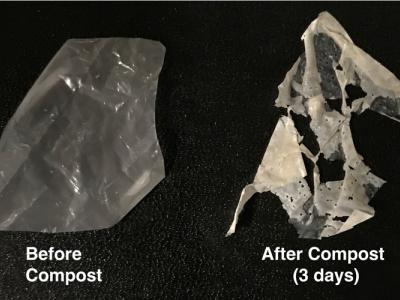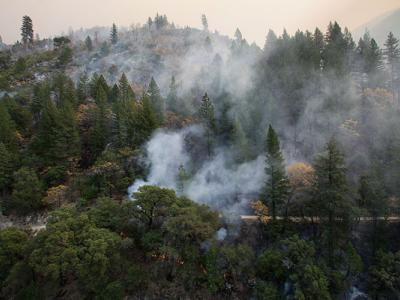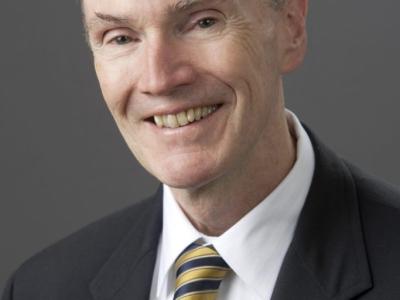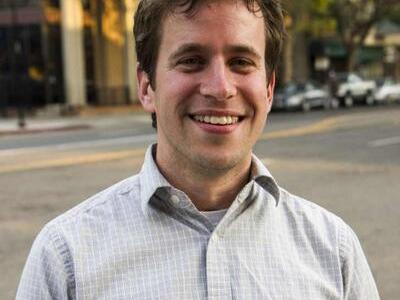The European house mouse has invaded nearly every corner of the Americas since it was introduced by colonizers a few hundred years ago, and now lives practically everywhere humans store their food.
Yet in that relatively short time span — 400 to 600 mouse generations — populations on the East and West Coasts have changed their body size and nest building behavior in nearly identical ways to adapt to similar environmental conditions, according to a new study by biologists at the University of California, Berkeley.
Research News
Learn more about UC Berkeley's researchers and innovators.
Showing 1025 - 1040 of 3459 Results
Topological quantum computing relies on qubits encoded in quantum states that are exponentially protected from local perturbations. One method for realizing such protected states is a practical recipe for topological superconductivity: hybrid superconductor-semiconductor nanowires in finite magnetic fields. In this talk I will describe experimental methods for identifying and manipulating the topological phase and associated Majorana quasiparticles in these devices.
Gabriel Zucman, associate professor of economics at the UC Berkeley College of Letters & Science, associate professor of public policy at the Goldman School of Public Policy, and director of the James M. and Cathleen D. Stone Center on Wealth and Income Inequality, has been selected as one of 26 recipients of the 2021 Andrew Carnegie Fellowship Award.
One of the first major studies into the impact of COVID-19 on birth outcomes has found that pregnant people who are infected with the SARS-CoV-2 virus face significantly higher risk of severe maternal and newborn complications compared to those without the virus.
Across the nation, unions and their leaders have strongly defended officers against accusations of excessive violence, often directed against people of color. Cities are dangerous places, they say, and that justifies a warrior-like approach to policing.
But in a series of interviews, Berkeley scholars said police unions have successfully used a range of tools, from the fine print in labor contracts to millions of dollars in political donations, to shield officers from accountability and promote hardline policing practices. While discipline is often secret and officers rarely lose their jobs, they say, cities have paid tens of millions of dollars in settlements with recent victims.
They feast on dead, rotting animals, urinate on their own feet to keep cool, and projectile vomit in self-defense. But UC Berkeley Ph.D. student Mackenzie Kirchner-Smith is passionate about vultures, and in California that means the turkey vulture and the largest land bird in North America — the California condor.
A team led by physicists at Lawrence Berkeley National Laboratory (Berkeley Lab) and UC Berkeley has successfully observed the scrambling of quantum information, which is thought to underlie the behavior of black holes, using qutrits: information-storing quantum units that can represent three separate states at the same time. Their efforts also pave the way for building a quantum information processor based upon qutrits.
With moderate heat, enzyme-laced films of the plastic disintegrated in standard compost or plain tap water within days to weeks, Ting Xu and her colleagues
Bakar Fellow Alessandra Lanzara has been at the forefront of expanding the capabilities of ARPES (Angle-Resolved Photo-Emission Spectroscopy) to directly detect electron spin. She and her team have now developed a detection system, which they call “spin-TOF,” that enables a material’s spin-dependent electronic and magnetic properties to be studied with a thousand times more sensitivity than any previous technology.
Raluca Ada Popa, assistant professor of computer science, designs computer systems to protect confidentiality by computing over encrypted data, while at the same time allowing joint access to the results of data analysis. With the support of the Bakar Fellows program her lab plans to build and test a new encryption system.
Six UC Berkeley faculty members and top scholars have been elected to the American Academy of Arts and Sciences (AAAS), a 241-year-old organization honoring the country’s most accomplished artists, scholars, scientists and leaders who help solve the world’s most urgent challenges.
University of California, Berkeley, scientists have now invented a way to make these compostable plastics break down more easily, with just heat and water, within a few weeks, solving a problem that has flummoxed the plastics industry and environmentalists.
What is the cost of one ton of a greenhouse gas? When a climate-warming gas such as carbon dioxide or methane is emitted into the atmosphere, its impacts may be felt years and even decades into the future – in the form of rising sea levels, changes in agricultural productivity, or more extreme weather events, such as droughts, floods, and heat waves. Those impacts are quantified in a metric called the “social cost of carbon,” considered a vital tool for making sound and efficient climate policies.
Now a new study by a team including researchers from Lawrence Berkeley National Laboratory (Berkeley Lab) and UC Berkeley reports that the social cost of methane – a greenhouse gas that is 30 times as potent as carbon dioxide in its ability to trap heat – varies by as much as an order of magnitude between industrialized and developing regions of the world.
Wildfire smoke can trigger a host of respiratory and cardiovascular symptoms, ranging from a runny nose and cough to a potentially life-threatening heart attack or stroke. A new study suggests that the dangers posed by wildfire smoke may also extend to the largest organ in the human body and our first line of defense against outside threat: the skin.
The UC Berkeley School of Public Health is very pleased to announce that Stephen Shortell, PhD, MPH, MBA, UC Berkeley School of Public Health Dean Emeritus and Blue Cross of California Distinguished Professor of Health Policy and Management Emeritus, has been named to Modern Healthcare’s Hall of Fame for his visionary leadership, relentless dedication to timely and relevant research, and extraordinary contributions to the healthcare field.
The College of Chemistry is pleased to announce that Evan Miller, (Ph.D. ’09, Chem) Associate Professor of Chemistry and Molecular & Cell Biology and of Biochemistry, Biophysics & Structural Biology, has been awarded the 2021 Donald Sterling Noyce Prize for Excellence in Undergraduate Teaching.

